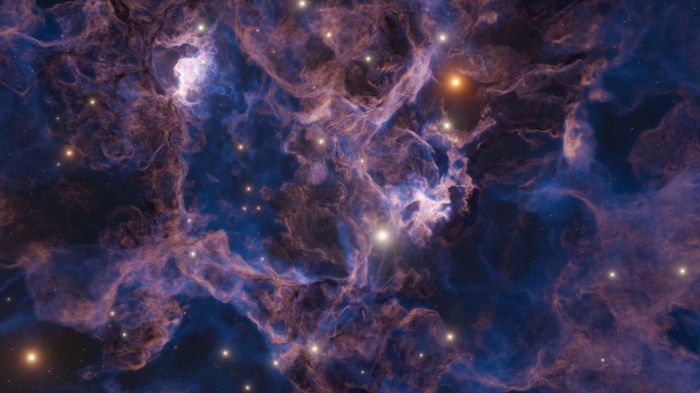Fourteen billion years represents the approximate age of our universe, a vast and awe-inspiring expanse that has captivated the minds of scientists and philosophers for centuries. This profound concept holds immense significance, providing a framework for understanding the origin, evolution, and ultimate fate of our cosmic abode.
Through meticulous scientific observations and advanced theories, we have pieced together a remarkable tapestry of evidence that supports the notion that the universe is approximately fourteen billion years old. This knowledge has revolutionized our understanding of the cosmos, offering a glimpse into the grand narrative of existence.
Age of the Universe
The universe is approximately fourteen billion years old. This figure represents the estimated time elapsed since the Big Bang, the event that is believed to have marked the beginning of the universe as we know it. The age of the universe is a fundamental parameter in cosmology, and it has implications for our understanding of the evolution and structure of the cosmos.The
evidence supporting the theory that the universe is approximately fourteen billion years old comes from a variety of sources. One important line of evidence is the cosmic microwave background radiation (CMB). The CMB is a faint glow of radiation that permeates the entire universe.
It is thought to be the remnant radiation from the Big Bang, and its properties can be used to estimate the age of the universe. Another important line of evidence comes from the abundance of light elements in the universe.
The Big Bang is thought to have produced a certain amount of hydrogen and helium, and the abundance of these elements in the universe today can be used to estimate the age of the universe.The age of the universe has important implications for our understanding of the evolution and structure of the cosmos.
For example, the age of the universe places limits on the size of the universe and the distance to the most distant objects that we can observe. The age of the universe also provides a timeline for the formation and evolution of galaxies, stars, and planets.
Formation of the Solar System

The formation of the solar system is a complex process that is thought to have begun about 4.6 billion years ago. The solar system is thought to have formed from a giant cloud of gas and dust that collapsed under its own gravity.
As the cloud collapsed, it began to rotate, and the material in the center of the cloud began to heat up. This hot material eventually formed the sun. The remaining material in the cloud formed a disk around the sun, and this disk eventually formed the planets, moons, and other objects in the solar system.The
formation of the solar system was a long and gradual process. It is thought that the solar system took about 100 million years to form. The first objects to form were the planets closest to the sun, and the planets farthest from the sun formed last.
The planets formed as the material in the disk around the sun began to clump together. These clumps eventually grew into the planets that we see today.The formation of the solar system was a complex process, but it is a process that has been repeated many times throughout the universe.
The solar system is just one of many planetary systems that have formed around stars in the Milky Way galaxy.
Earth’s History: Fourteen Billion Years Represents The Approximate Age Of

The Earth is about 4.5 billion years old. It is the third planet from the sun and the only known planet in the universe that is inhabited by life. The Earth has a long and complex history, and its geological record provides a wealth of information about the planet’s past.The
Earth’s early history was dominated by volcanic activity. The Earth’s surface was covered in volcanoes, and the atmosphere was thick with volcanic gases. Over time, the Earth’s surface cooled and the atmosphere began to clear. About 3.5 billion years ago, the first oceans formed.
The oceans provided a habitat for the first life forms, and the Earth’s atmosphere began to change as a result of the release of oxygen by photosynthetic organisms.The Earth’s climate has changed dramatically over the course of its history. The Earth has experienced several ice ages, during which the planet’s surface was covered in ice.
The Earth has also experienced periods of global warming, during which the planet’s surface was much warmer than it is today. The Earth’s climate is currently in a period of global warming, and the planet’s average temperature is rising.The Earth’s geological record provides a wealth of information about the planet’s past.
By studying the Earth’s rocks, fossils, and other geological features, scientists can learn about the planet’s history, its climate, and its inhabitants.
Evolution of Life

The evolution of life on Earth is a long and complex process that has been going on for about 3.5 billion years. The first life forms on Earth were simple, single-celled organisms. Over time, these organisms evolved into more complex multicellular organisms.
The evolution of life on Earth has been driven by a number of factors, including natural selection, genetic drift, and mutation.Natural selection is the process by which organisms that are better adapted to their environment are more likely to survive and reproduce.
Over time, this can lead to the evolution of new species. Genetic drift is the process by which the frequency of alleles in a population changes over time due to random events. Mutation is the process by which the DNA of an organism changes.
Mutations can be caused by a variety of factors, including environmental factors and errors in DNA replication.The evolution of life on Earth has been a complex and gradual process. It has taken billions of years for life to evolve from simple, single-celled organisms to the complex and diverse organisms that we see today.
Human History
Human history is the study of the past of humanity. It is a vast and complex field that encompasses many different disciplines, including archaeology, anthropology, history, and sociology. Human history is often divided into different periods, such as the Stone Age, the Bronze Age, and the Iron Age.The
Stone Age is the earliest period of human history, and it lasted from about 2.6 million years ago to about 6,000 years ago. During the Stone Age, humans lived in small bands and hunted and gathered for food. They also developed the first tools and weapons.The
Bronze Age is the period of human history that lasted from about 6,000 years ago to about 3,000 years ago. During the Bronze Age, humans began to use bronze, which is an alloy of copper and tin. Bronze is harder than copper, and it was used to make a variety of tools, weapons, and armor.The
Iron Age is the period of human history that lasted from about 3,000 years ago to about 1,200 years ago. During the Iron Age, humans began to use iron, which is harder than bronze. Iron was used to make a variety of tools, weapons, and armor.Human
history is a long and complex story. It is a story of progress and innovation, but it is also a story of war and conflict. Human history is a reminder that we are all part of a long and continuing story, and that we are all connected to each other.
User Queries
How was the age of the universe determined?
The age of the universe has been estimated using various scientific methods, including measuring the expansion rate of the universe, analyzing the cosmic microwave background radiation, and studying the radioactive decay of elements in ancient stars.
What are the implications of the universe being fourteen billion years old?
The age of the universe provides a timeline for understanding the evolution of galaxies, stars, planets, and life itself. It also has implications for our understanding of the fundamental laws of physics and the ultimate fate of the universe.
What is the significance of fourteen billion years in the context of human history?
Fourteen billion years is an incomprehensibly long period of time compared to the brief span of human existence. It serves as a humbling reminder of our place in the vastness of time and space, and inspires us to appreciate the fragility and preciousness of life.